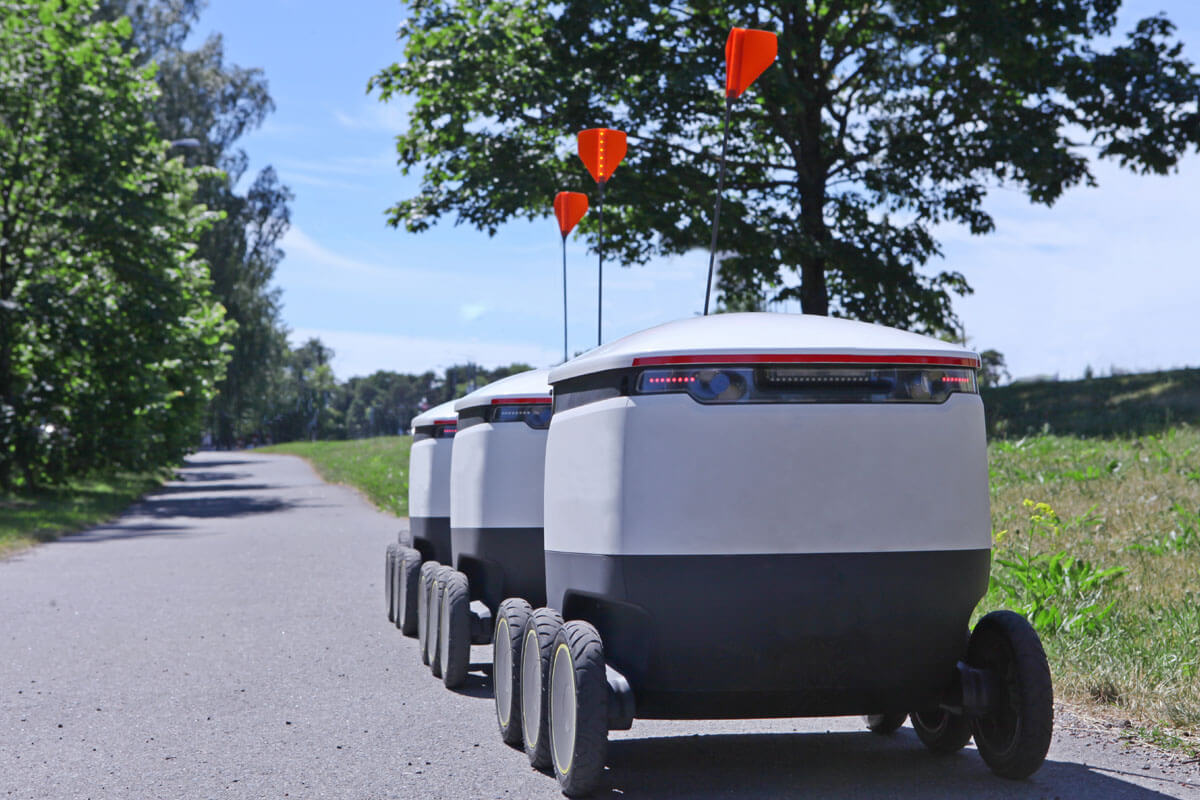The future of the smart city

Hakan Akkurt
Business DeveloperHow does the smart city of the future function and what is the contribution of geographic information to this future? Within my municipal clientele, I regularly catch creative ideas. Therefore, I asked around among my GIS Consultancy colleagues how they envision the future of the smart city. Based on their input, I am writing this blog.
Sustainable smart city of the future
Sustainable topics are regularly discussed at the lunch table at Tensing. This is mainly because most of my colleagues have completed undergraduate studies in a geological, ecological, hydrological, soil science or other outdoor space related field. Thanks to this prior knowledge, my colleagues have an above-average understanding of the consequences of climate change. The smart city of the future must stand for a sustainable and smarter living environment, according to the input I received from colleagues.
Some of the ideas from our consultants:
- Sensors in your home measure the impact of your energy consumption on the environment;
- Of all your waste, it is carefully measured how much is recyclable (the balance between non-recyclable and recyclable materials determines how much local taxes you pay):
- The more food you compost, the lower your local taxes;
- Public transportation is so well streamlined through excellent data sharing that even a ride in your self-driving car becomes unnecessary;
- Inner cities are a lot quieter as a result, making roadways less prominent, leaving more space for greenery;
- By using time more efficiently (working 32 hours is enough), you have more time to grow your own tomatoes (or legumes);
- Because you can be partially self-sufficient even within the city (because you grow your own tomatoes and/or legumes) you can spend more money on local products;
- Those local products are also automatically ordered from the sensor in your fridge based on your personal eating algorithm;
- Have a package delivered? That is done by self-steering robots that, thanks to a small panel on the roof and a super efficient battery, run entirely on solar energy.
Text continues below image.

The Smart City already exists
Fantasizing about the smart city of the future is tantalizing. But: actually, the phenomenon is already quite mature. Take Copenhagen, for example. That city has been super innovative in terms of sustainability for years. All new flat roofs (slope less than 30 degrees) must be covered with vegetation, urban gardens are ubiquitous and renewable energy is being used on a very large scale.
In the Netherlands, there are also plenty of developments going on in this area. Consider, for example, the Common Woods neighborhood in Amersfoort. A forest district that will be finally completed next year and consists of circular and modularly built houses. The future residents there will be surrounded by greenery, a birdhouse in the facade is normal, and the use of concrete and steel is out of the question during construction. This initiative is a big step toward the sustainable living environment of the future.
Text continues below image.

Increasing role for location data
The growing popularity of smart cities, thanks in part to innovative municipalities such as Amsterdam, Apeldoorn, Eindhoven and Utrecht, is adding a new dimension to the possibilities of location data. The amount of publicly usable geographic data has increased tremendously, particularly at the hands of Google. The day the dividing line between public and private data finally disappears, this offers enormous new opportunities.
In addition, data no longer belongs to organization X or Y, I see more and more active collaboration being sought. Municipalities, provinces, utilities and infrastructure companies are increasingly looking to each other to collaborate on data. If this positive development continues over the next 30 years, I see a bright future for the smart city.



.png)